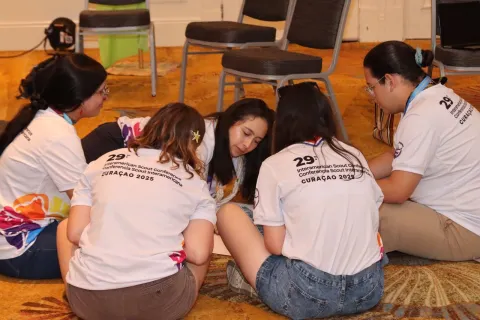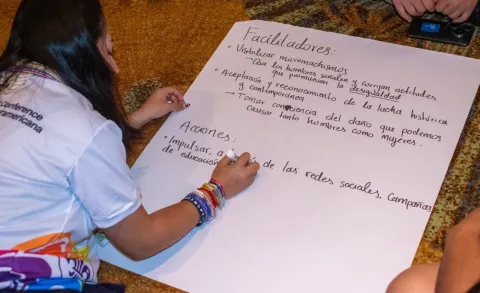Bringing voices together for gender-balanced leadership in Scouting
On 1 November 2025, during the Interamerican Scout Conference, more than 30 participants from 12 countries gathered for a dynamic workshop on women in leadership, a space designed to reflect, learn, and take action to strengthen gender equality across the Scout Movement in the Americas.
Drawing on recent regional studies and key resolutions approved by the Interamerican Scout Region, the session explored the realities facing women in Scouting today. Participants examined data showing that while 96% of surveyed members believe gender equality is a fundamental right, many women still face barriers such as gender stereotypes, low self-confidence, limited time availability, and traditional expectations that often prevent them from stepping into leadership roles. The workshop sparked reflection on how these global and regional trends also appear in local Scout contexts.

Interactive moments encouraged participants to discuss experiences of bias, explore the role of male allies, and identify the enabling factors that help women thrive, such as mentorship, supportive organisational cultures, dedicated leadership training, and the integration of gender equality within the youth programme. Together, they developed concrete actions the region can take over the next year to improve gender balance, as well as a shared vision for what success should look like three years from now: a Scout Movement where leadership is accessible, diverse, and reflective of all its members.
The workshop emphasised that advancing women’s leadership is not only a question of fairness but essential to fulfilling Scouting’s mission and shaping a future where everyone can be empowered to lead.
This initiative is part of the Strengthening Scouting in the Caribbean project, made possible by the longstanding support and partnership of Alwaleed Philanthropies through World Scouting Grants. The partnership supports organisations in creating safer, more equitable and empowering spaces for all young people and adults in the region.
